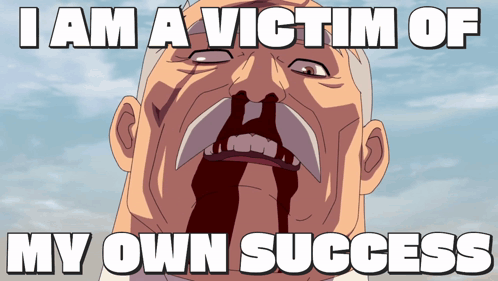
The meme says it all, doesn't it? It’s funny, until it’s not. Until you’re living it. This is the story of my time at a company in Tangerang, Indonesia, where being good at my job turned into a curse.
I was one of two full-stack developers responsible for… well, everything. The workflow was a myth, a legend whispered about but never seen. We were in a perpetual state of chaos, building complex applications with no clear direction, no documentation, and certainly no project management. It was a high-stress environment where the only rule was to keep shipping, no matter the cost.
My daily routine was a special kind of hell. It started with a brutal commute, sitting in the infamous Tangerang traffic, watching the minutes tick by, already feeling drained before I’d even written a line of code. I’d get to the office, and the pressure would hit me like a physical force. The requests were relentless, the goalposts were always moving, and I was constantly context-switching between a dozen different half-baked projects.
I was drowning. My personal life evaporated. I had no time for myself, for hobbies, for rest. The thought of quitting became a constant, comforting fantasy. I was burning out, and it was obvious.
But my manager saw my struggle differently. His mindset, as far as I could tell, was something like: "This dude is good at coding, and he’s probably going to leave. We need to squeeze every last drop of productivity out of him before he does."
He wasn’t entirely wrong. He did try to persuade me to stay, with vague promises of a better future that never seemed to materialize. But his actions spoke louder than his words.
The breaking point came on a random Tuesday evening. I was exhausted, packing up to finally go home, when my manager walked over to my desk. "We need to finish this application," he said, his voice casual, as if he were asking for a cup of coffee. "The client needs it by tomorrow morning."
I was stunned. "What application?" I asked. There had been no planning, no design, no discussion. Nothing. He was essentially asking me to pull a fully-formed application out of thin air.
I tried to reason with him. "That's impossible," I said. "There's no design, no specs. We can't build something from scratch overnight."
He wouldn't hear it. He just kept repeating that it had to be done. The client was waiting. The pressure was immense. So, I stayed. I sat at that desk from 8 AM one day until 1 AM the next, fueled by caffeine and pure, unadulterated frustration. It’s not easy to stay focused, to write coherent code, when your brain is screaming for sleep and your body is aching from sitting in the same chair for 17 hours.
That night, staring at the flickering screen in a dead-silent office, I realized the truth. I was being punished for my competence. My ability to deliver under pressure had become an expectation, a license for them to exploit my skills without any regard for my well-being.
I made my decision.
A few weeks later, I handed in my resignation. It wasn’t an easy choice, but it was a necessary one. I left behind the chaos, the traffic, and the manager who saw me not as a person, but as a machine. I was a victim of my own success, and the only way to win was to walk away.
Some Hard-Earned Advice
Going through that taught me a few brutal lessons. If you're a developer on the job hunt, especially in Indonesia, maybe my scars can save you some pain. Here are a few red flags I now look for:
-
Know the Product Type. If you hate dealing with clients directly, be very careful about the type of company you join. If they sell physical products and software is just a 'feature,' you'll likely be dragged into every client-facing fire drill. If you want to focus on code, aim for companies where software is the product.
-
Interrogate the Team Structure. This is non-negotiable. Ask about the IT team during the interview. How many developers? Are there dedicated PMs, QA, and designers? If you hear "we're a small, agile team" and find out you'll be one of two full-stack devs, that's a massive red flag. It's code for "you will do everything, and it will never be enough."
-
Beware the "Cringe Name" Companies. This might sound superficial, but it's a surprisingly effective filter in Indonesia. Be wary of companies with overly long, generic, buzzword-filled names like PT. Inovasi Sejahtera Mandiri Sukses, PT. Karya Inovasi Bangsa, or PT. Makmur Sejahtera Selamanya. In my experience, these names often correlate with chaotic, traditional management, not a modern tech culture.
-
Your Career is Not a Gamble. This is the most important lesson. They will promise you a future salary increase that you don't even deserve (because you deserve better, now). They will sell you a dream. Don't buy it. Don't sacrifice your mental health, your time, and your future for a company that sees you as a resource to be drained. Your skills are in demand. Go find a place that respects them.